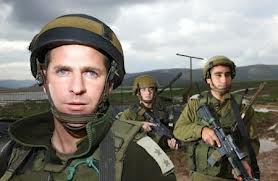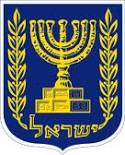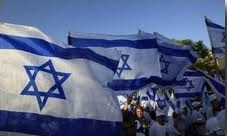 |
 |
 |
Advocacy for Israel happens in a variety of ways, it can be simple as in casual conversations with friends or neighbors, recommending an essay or book, writing letters to newspapers, drawing audiences for film presentations, and organizing speaking events.
The FJMC has partnered with Advocates for Israel (AFI), a national Israel advocacy non-profit organization. They assist starting up local advocacy committees and maintain critical connections between new and existing grass-roots groups such as yours.
The below initiatives were created and executed by fellow activists in the ‘field’ such as yourselves and not at ‘headquarters.’ It is likely and hoped that you will improve upon some of these initiatives. We look forward to learning from your experience as we all benefit from our collective experiences in building such events. The goal is to improve our effectiveness one way we and we accomplish this is by sharing our resources and knowledge.
Here is a list of initiatives that have proven to be effective and easy to implement. Most importantly, we will support your efforts with mentors, supplemental materials such as brochures, scripts, press releases, posters, PowerPoint presentations, etc. The next step is for you to say, yes and get in touch with us.
Drop us a line to get more information and share what is your situation so we can brainstorm possible next steps: Write to: mikep2@comcast.net. Mike Perloff FJMC Israel Affairs chair.
- Community-Based Speakers Bureau – Local volunteers who have studied the history and current events of Israel and are dedicated to sharing the facts concerning the situation in the Middle East.
- Media Watch Team - Monitoring and responding to media bias directly, fully, and with confidence.
- Notable Guest Speakers –Sponsoring public speaking engagements for the general and Jewish audience. Though sometimes expensive, if done properly they can attract major media attention, making the cost worthwhile.
- Film Nights - Numerous effective and fairly inexpensive documentaries are available and can draw a sizeable audience, especially when paired with a good local speaker.
- Public Access TV – Submitting and promoting showings of effective films.
- Israel Rally – Community-based rallies featuring pro-Israel speakers from a variety of walks of life.
- Response to Opposition - Countering pro-Palestinian exhibits, demonstrations, etc. by seeking opportunities to provide the inevitable missing context or correct false information.
- Four Rabbis – Invite several other rabbis to join the host rabbi of a synagogue for prepared speeches and Q & A from the audience.
- Israel Corner - Obtaining space in local synagogue bulletins to regularly publish articles on Israel
- Synagogue Declaration - Using our declaration as a sample, persuade you local synagogue board to declare its support for Israel via programming, education and otherwise throughout the year.
- Israel Trips –Encouraging and supporting Jews and others to visit Israel on tours, trips, Birthright trips for youth, fact-finding missions, and leadership/diplomatic conferences, etc.
- Combat Israel Boycott & Divestment Initiatives - Lobbying organizations to not pass such initiatives and/or to reverse earlier decisions. Join/lead other community groups utilizing the power of National Zionist organizations and their members to support you.
- Promote Positive Israel – Distributing information about the phenomenal accomplishments of Israelis rather than merely reacting to the negative propaganda.
- Book Donation – Giving local libraries copies of helpful books.
- Yom Ha’atzmaut Festival - Most of the Jewish communities in the Western world have incorporated this modern holiday into their calendars. For Diaspora Jews, celebrating Yom Ha'atzmaut has been a w ay to express solidarity with the state of Israel and to strengthen their alliance with it.
In many communities, it is one of few occasions in which Jewish organizations and synagogues of different ideologies and denominations cooperate in forming a common celebration. In many North American congregations, the joint public celebration often is In augmented by a religious service. In some cases, this would occur on the Shabbat closest to Yom Ha'atzmaut and would consist of additional readings added to the service and, usually, the singing of Hatikvah (the Israeli national anthem).
